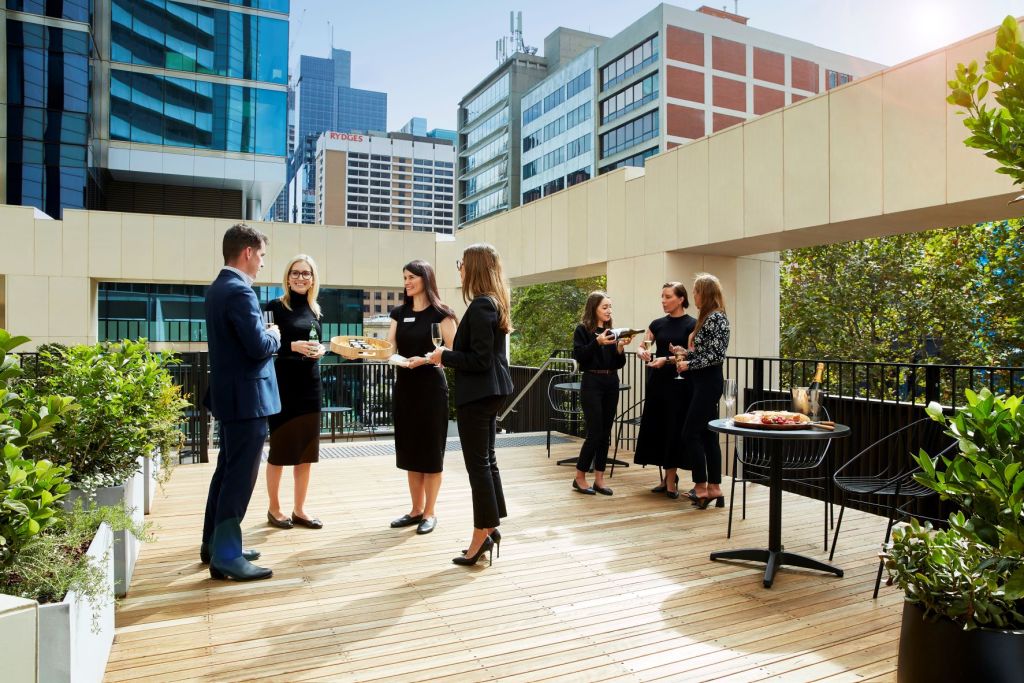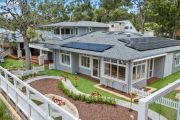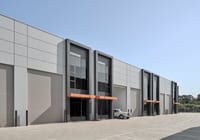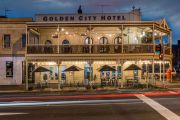
The increasing emphasis on the ‘third spaces’ of commercial property
A barbecue area on the rooftop, a shared meeting space, a gym, a prayer or zen room, an outdoor balcony for eating lunch, an indoor basketball court … the owners of large office buildings are today offering their tenants far more than simply the commercial workplaces they rent for their normal day-to-day business.
There’s now an increasing emphasis on the “third spaces” curated by property companies – as distinct from the “first space”, which is the home, and the “second space”, or office – which can be communal spaces, beyond the tenancy, which workers are free to use, or which they, or their employers, can book and pay for.
“Depending on the style of the third space, they can make the workplace more appealing and offer more facilities to a company tenant in a building,” said Grant Nichols, head of office at the Centuria Capital Group. “It can provide a different environment for staff, which can add another string to the company’s bow.
“There’s a strong push after COVID to encourage staff back to offices and, if they can offer amenities like outdoor areas, or the chance to exercise at work with a gym or yoga room, or good meeting rooms that are attractive to both smaller tenants and larger businesses, then that can make the office more attractive. And there’s another benefit in their impact on employees’ productivity.”
Providing these third spaces in towers can also play a powerful role in attracting and retaining great staff. Younger workers in particular, who were hardest hit by the pandemic lockdowns and long periods of working in isolation from home, are known to really value the chance to use communal facilities and, along the way, mix with the employees of other tenants in the same buildings.
“They provide opportunities to interact with other people, which really helps create a community,” Nichols said. “The working environment can then feel quite different to simply sitting at a desk.”
Some of the facilities offered in Centuria’s buildings throughout Australia include an outdoor balcony and indoor basketball court at its building on Moray Street in Melbourne – which has also been used for “chuck a hoop” competitions – a rooftop barbecue space at 818 Bourke Street and other spaces for workouts or open-air yoga, quiet prayer or contemplation rooms and outdoor balconies, often with views. Other areas are also often trialled, like community gardens.
These third spaces are also a priority for Dexus, which has 1.4 million square metres of office space. “We consider these third spaces or activation of community-type spaces as really important and a key foundation experience for customers,” said Lorraine Lee, Dexus, the head of office – property and asset management.
“In the post-COVID environment, enticing people back to their workplaces and making them very inviting places for people is even more important,” she says. “We’ve been on this customer journey for almost 10 years now, thinking about how we can create a great customer experience in our assets, but now it’s increasingly important as we attract people back to the office and revitalise the country’s CBDs.”
The company also has its Dexus Place business, with buildings that offer meeting spaces and opportunities for customer collaboration as an extension to work environments, and that can be used by other buildings’ tenants or the wider community. It also runs a series of events in its blocks for tenants.
The lobby of Rialto Towers in Melbourne, for instance, has been used for Daffodil Day to raise funds for cancer research. There have been fitness classes in Sydney’s Australia Square, and, in various buildings, there have been art exhibitions, Red Cross blood donating, skin checks, free coffee on International Coffee Day and “paint-and-sip” classes. End-of-trip facilities are also often provided.
“We have a number of new precincts underway and we collaborate with our customers on the type of amenity they would see as important,” Lee said.
Charter Hall Group also provides dedicated wellness areas and end-of-trip facilities, as well as locations in which to socialise, dine and entertain, in a number of their buildings.
“We are always looking for ways to make workplace experiences the very best they can be,” said Carmel Hourigan, office chief executive at Charter Hall. “At Charter Hall, we know that attracting and retaining talent and creating healthy, homely and collaborative environments drives performance, innovation, mutual success and well-being.
“Being both the developer and long-term owner allows us the unique opportunity to closely engage with our tenant customers on a regular basis to understand their evolving needs and expectations.”
Recently, the company partnered with the City of Melbourne to host Melbourne Fashion Week, providing its Wesley Place precinct as one of the pop-up catwalks, while its communal hub hosts a range of events, conferences and functions, as well as training and workshops.
The design of its CBD 555 Collins Street building includes an activated ground plane with a retail hub with food and beverage outlets and a health and wellbeing offering.










